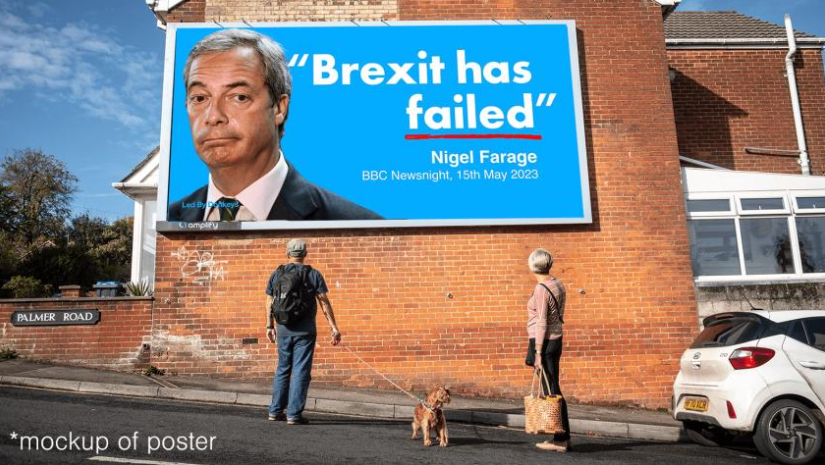US climate deniers pump millions into Tory-linked think tanks
Original article by Adam Bychawski republished from Open Democracy under under a Creative Commons Attribution-NonCommercial 4.0 International licence. This article was published 16 June 2022 while Boris Johnson was UK Prime Minister. Boris Johnson was followed by Liz Truss and Rishi Sunak as prime ministers.

Our investigation reveals secretive funding sources for think tanks that boast of influencing the government
Influential right-wing UK think tanks with close access to ministers have received millions in ‘dark money’ donations from the US, openDemocracy can reveal.
The TaxPayers’ Alliance, the Institute of Economic Affairs (IEA), Policy Exchange, the Adam Smith Institute and the Legatum Institute have raised $9m from American donors since 2012. Of this, at least $6m has been channelled to the UK, according to tax returns filed with US authorities – representing 11% of the think tanks’ total UK receipts, with the figure reaching 23% for the Adam Smith Institute.
In that time, all five have steadily increased their connections in the heart of government. Between them, they have secured more than 100 meetings with ministers and more than a dozen of their former staff have joined Boris Johnson’s government as special advisers.
Representatives from right-wing think tanks – many of whom are headquartered at 55 Tufton Street in central London – frequently appear in British media and have been credited with pushing the Tories further to the right on Brexit and the economy.
As openDemocracy revealed yesterday, ExxonMobil gave Policy Exchange $30,000 in 2017. The think tank went on to recommend the creation of a new anti-protest law targeting the likes of Extinction Rebellion, which became the Police, Crime, Sentencing and Courts Act 2022.
None of these think tanks disclose their UK donors. With the exception of the Adam Smith Institute, none provide any information about the identity of donors to their US fundraising arms.
But an investigation by openDemocracy has identified dozens of the groups’ US funders by analysing more than 100 publicly available tax filings.
The Scottish National Party MP Alyn Smith said that the findings showed that the UK’s lobbying laws were not tough enough.
“He who pays the piper calls the tune,” he told openDemocracy. “We urgently need to rewrite the laws governing this sort of sock puppet funding so that we can see who speaks for who.”
Last month, Smith asked an IEA representative who funded the think tank on BBC’s flagship question time show.
Among the US-organisations who have donated to UK think tanks are oil companies and several of the top funders of climate change denial in the US.
The think tanks’ US arms received $5.4m from 18 donors who have also separately donated a combined $584m towards a vast network of organisations promoting climate denial in the US between 2003 to 2018, according to research from climate scientists.
- The John Templeton Foundation, founded by the late billionaire American-British investor, has donated almost $2m to the US arms of the Adam Smith Institute and the IEA. Researchers claim that the John Templeton Foundation has a “history of funding what could be seen as anti-science activities and groups (particularly concerning climate-change and stem-cell research)”.
- The National Philanthropic Trust, a multi-billion-dollar fund that does not disclose its own donors, has given almost $2m to the IEA, Policy Exchange, TaxPayers’ Alliance and the Legatum Institute’s US fundraisers. The trust has donated $22m to climate denial organisations, one of which described it as a “vehicle” for funnelling anonymous donations from the fossil fuel industry.
- The Sarah Scaife Foundation, founded by the billionaire heir to an oil and banking fortune, has given $350,000 to the Adam Smith Institute and the Legatum Institute. The foundation is one of the biggest funders of climate denial in the US, contributing more than $120m to 50 organisations promoting climate denial since 2012. Last month, openDemocracy revealed that the foundation, which has $30m in shares in fossil fuel companies, gave $210,525 to a UK climate sceptic group.
Policy Exchange, the influential conservative think tank, published a report in 2019 – two years after taking money from ExxonMobil – claiming that Extinction Rebellion were “extremists” and calling for the government to introduce new laws to crack down on the climate protest group.
New anti-protest laws passed under the Police, Crime, Sentencing and Courts Act last month appear to have been directly inspired by the report. The Home Office did not deny that it considered the recommendations when approached for comment.
The American Friends of the IEA also received a $50,000 donation from ExxonMobil in 2004, while the main UK branch of the IEA has received donations from BP every year since 1967.
The Legatum Institute has received $154,000 from the Charles Koch Foundation in 2018 and 2019. The foundation was set up by the American billionaire co-owner of Koch Industries, one the biggest fossil fuel companies in the US.
Andy Rowell, co-author of “A Quiet Word: Lobbying, Crony Capitalism and Broken Politics in Britain”, told openDemocracy: “For years, there have been calls for think tanks, who are so often joined at the hip with government, to be transparent and disclose who funds them.
“The fact that so much dark money is behind these groups, and much of it is linked to climate denial groups, is a political scandal that can’t be allowed to continue, especially given our climate emergency.”
In all, US donors account for more than a tenth of the overall income of the IEA, Policy Exchange, Adam Smith Institute and TaxPayers’ Alliance.
Anti-green lobbying
While all the think tanks say they do not dispute the science on climate change, many are campaigning to increase the UK’s dependency on fossil fuels and deregulate energy markets in response to the cost of living crisis.
The TaxPayers’ Alliance, Adam Smith Institute and the IEA have all called for the UK’s ban on fracking to be overturned. In April, the government agreed to review the moratorium it had imposed in 2019, when scientists deemed fracking unsafe. The U-turn came after concerted pressure from anti-net zero Tory MPs and lobby groups.
The IEA has also called for the government to approve the opening of a new coal mine in Cumbria, while the TaxPayers’ Alliance has called for the government to scrap green energy bill levies. Tory MP Ben Bradley has cited the TaxPayers’ Alliance in Parliament while claiming that levies will exacerbate the cost of living crisis.
Environmental groups say cutting the levies, which are used to invest in energy efficiency measures and renewable energy, would be self-defeating and merely delay the UK’s longer-term transition away from fossil fuels.
Johnson’s think tank cabinet
Right-wing think tanks like the IEA have come to play an increasingly influential role in shaping British politics, despite the lack of transparency around their funding.
The IEA has boasted that 14 members of Boris Johnson’s cabinet – including the home secretary Priti Patel, the foreign secretary Liz Truss and the business secretary Kwasi Kwarteng, are “alumni of IEA initiatives”.
Ministers have recorded 26 meetings with the think tank since 2012, but there may be additional, undeclared private meetings. In 2020, Truss, who was then the secretary of state for trade, failed to declare two meetings with the IEA, arguing that they were made in a personal capacity.
Mark Littlewood, the director of the IEA, has boasted of securing access to ministers and MPs for his corporate clients, including BP, telling an undercover reporter in 2018 that he was in “the Brexit influencing game”.
Others like Policy Exchange, which was co-founded by the ‘levelling up’ secretary Michael Gove, can claim to have had some of their policy ideas taken up by the government.
Gove’s recently announced plan to allow residents to vote on whether to allow developments on their street was first proposed by Policy Exchange last year. Campaigners said the plan will not help increase the supply of affordable housing.
Several of the think tanks were accused by a whistleblower of coordinating with one another to advocate for a hard break from the European Union following the referendum vote.
Shamir Sanni, a former pro-Brexit campaigner who worked for TaxPayers’ Alliance before going public with his claims, alleged that the organisation regularly met with the IEA, the Adam Smith Institute to agree on a common line on issues relating to Brexit.
Sanni subsequently won an unfair dismissal case against the TaxPayers’ Alliance. The organisations he identified have all denied they act as lobbyists or coordinate.
The IEA referred openDemocracy to a statement about its funding posted on its website when approached for comment.
The TaxPayers’ Alliance, Adam Smith Institute, Policy Exchange and the Legatum Institute did not respond to requests for comment.
Original article by Adam Bychawski republished from Open Democracy under under a Creative Commons Attribution-NonCommercial 4.0 International licence. This article was published 16 June 2022 while Boris Johnson was UK Prime Minister. Boris Johnson was followed by Liz Truss and Rishi Sunak as prime ministers.



